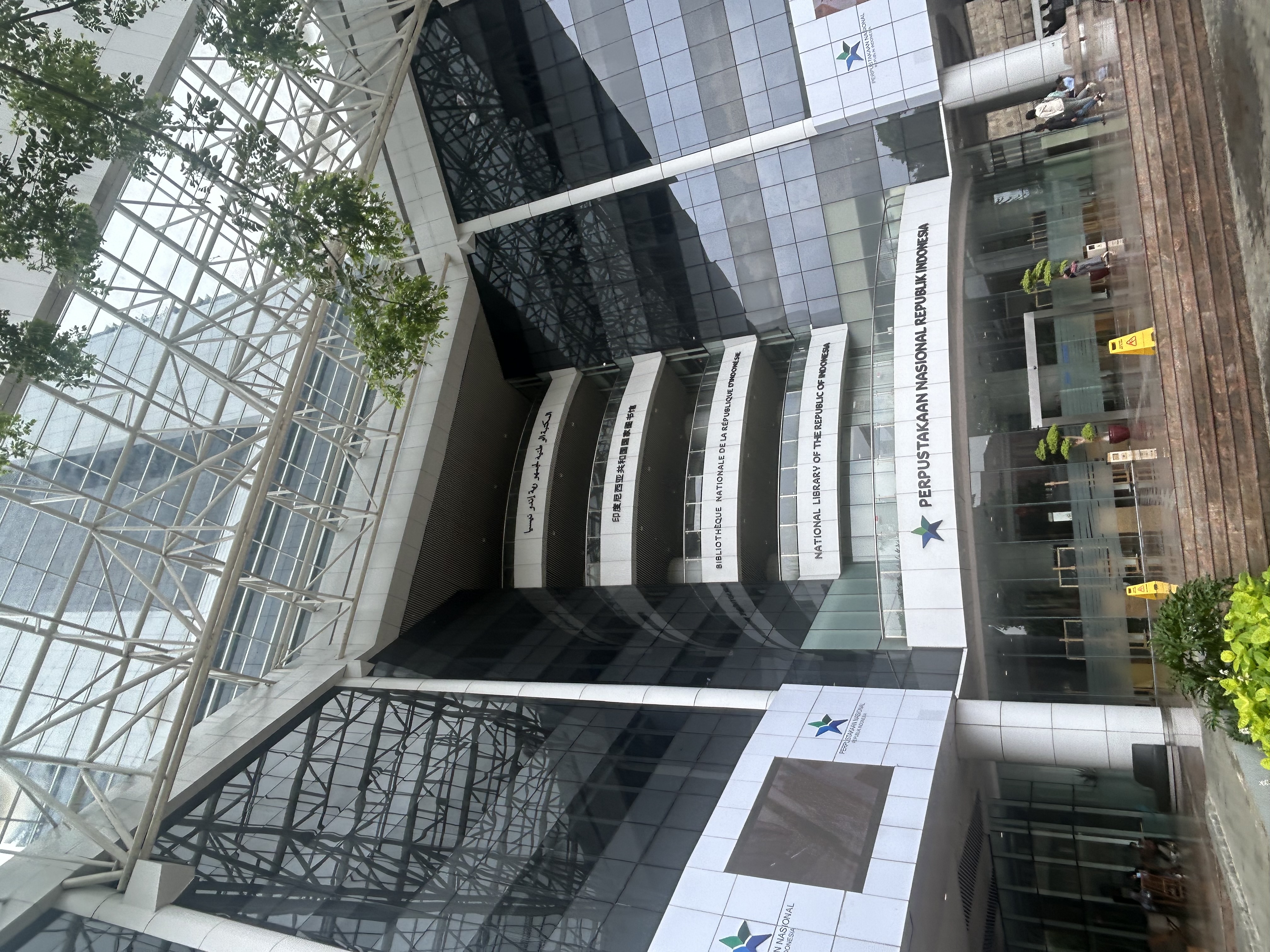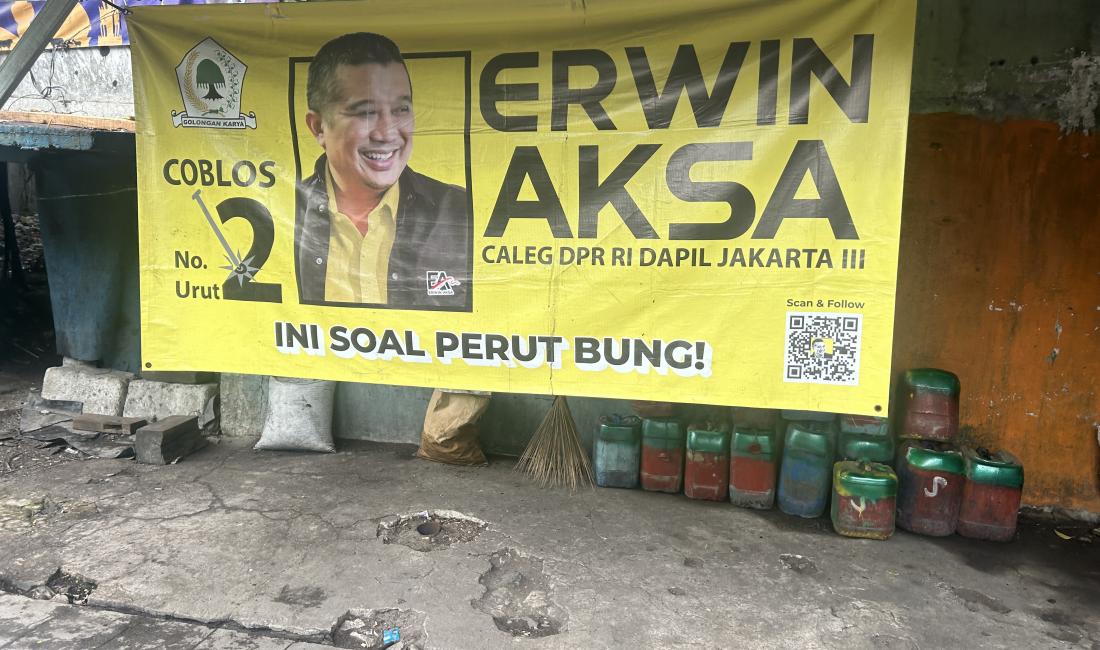Karachi candidate declares his victory rigged. Indonesia mends its losers.
Welcome to the new newsletter from Democracy Local, a planetary publication devoted to everyday people governing themselves. I’m Joe Mathews, a journalist and a founder and publisher of Democracy Local.
If you’d like to receive this newsletter by email or text, you can sign up here or email me joe@democracylocal.com
THE LOSERS WIN IN DEMOCRACY
Democracy, observes the Swiss Broadcasting global democracy correspondent (and Democracy Local co-founder) Bruno Kaufmann, works best when the losers are happy. In other words, an effective democracy has the losers of elections or other processes feeling like winners.
But in annals of democratic losers, there may be no greater winner than Hafiz Naeem ur Rehman.
Rehman, of the Islamist Jamaat-e-Islami party, ran for a provincial seat in Karachi and was declared the winner with 26,000-plus votes. But Rehman quickly discovered that one of his opponents, an independent candidate Saif Bari, had won 31,000 voters. The tally had been lowered to 11,000 in a vote rigging scheme.
Rehman immediately announced the rigging and surrendered his seat. "Public opinion should be respected, let the winner win, let the loser lose, no one should get anything extra," Rehman told Reuters. "I will not accept it, the winner should be given the victory."
Rehman has won worldwide praise. Which is wonderful because election losers need support.
HEALING THE LOSERS
The doctors and nurses at Indonesia’s community health centers, or puskesmas, understand this. After the February 14 election, hospitals and psychiatric clinics opened special facilities for failed candidates “who are likely to suffer from stress and mental breakdown,” according to the Jakarta Post. In many cases, this means setting aside a half-dozen beds in separate wings for depressed losing candidates.
Such post-election convalescence has been an Indonesian post-election tradition since democracy returned to the archipelago at the end of the 20th century. And the problem of post-election depression is a large one, because Indonesia holds all its elections, on all political levels, on one day.
This February, that meant that more than 260,000 Indonesians were running for office. Only about 20,000 won, leaving nearly a quarter-million failed candidates.
The average cost of a local or legislative campaign can run into the tens of thousands of dollars. For failed candidates, post-election depression often has to do with debt.
If you know losing candidates who need help, please let them know they have options. Among the facilities offering such post-election services are Sayang General Hospital in Cianjur, Banten Health Agency in Bandung; Menur Pyschiatric Hospital in Surabaya, and Aceh Psychiatric Hospital, in Sumatra.
THE DEMOCRATIC WAY TO EAT?
A German citizens assembly called “Nutrition in Transition” has presented its recommendations on food policy. Among the suggestions are free meals in nursery schools, removing taxes on healthy food, and mandates that grocery stores of a certain size (400 square meters or more) give away edible food that they otherwise discard. The report, in German, is here.
PRACTICING WHAT YOU PREACH: The Participatory Budgeting Project, which works with governments and organizations in the U.S. to help people decide how to spend and budget money, is asking the rest of us how to spend $20,000 of the project’s own dollars. You can see the options and vote at https://www.participatorybudgeting.org/pb-for-pbp/
WHAT DEMOCRACY LOCAL IS READING, PART 1
The New Hanse, a collaboration between the New Institute and its home city of Hamburg, has produced a groundbreaking report, “Governing Urban Data for the Public Interest.” It’s an intriguing document, offering European cities strategies not just how to govern their own data but how to work with other cities on data.
The most powerful ideas involve the democratic control of governance themselves. This includes, The New Hanse report says, requiring private data holders to share in the public interest.
Intriguingly, the report also suggests that cities or municipal administration recognize that they have their own conflicts of interest in handling data. So they should set up non-profit “data intermediaries” that have a clear mission to serve the public. Such intermediaries can negotiate complex issues, disputes, security concerns, and other novel questions raised by attempts to gather, pool, and share data with the public.
You can access the full report—without intermediary—here.
WHAT DEMOCRACY LOCAL IS READING, PART 2
My colleagues at Zócalo Public Square, where I’m a longtime columnist and democracy editor, are publishing “Election letters” from writers and observers in countries with elections this year. Among the intriguing recent contributions are from Pakistan and Indonesia. You can read the letters here.
TYPE OF DEMOCRACY OF THE WEEK
“Radical democracy” is the name Participedia has given to the summer school it offers. The term gets an explanation from Etienne Cardin-Trudeau, a University of Toronto Ph.D. candidate in political theory who is interested in Quebec nationalism and indigenous politics, at Participedia.
In short, radical democracy is complicated. Cardin-Trudeau says:
Radical democracy implies returning to the roots of democracy and its core values. I see it as a process rather than a model of politics. It might be better to talk of radicalizing democracy. But what do we mean by returning to the roots of democracy? I certainly do not think we should go back to the type of exclusionary politics of the Ancient Greek. The “going back,” to me, is not so much temporal, but etymological. If Demos means people, and if Kratos means power, then what does it mean for the people to have power? Radical democracy proposes to examine both terms and redefine them in a way that both renders more porous the boundaries of the people and articulates different understandings of its power; how it materializes and can be grown, fostered and, to a certain extent, legitimately constrained.
DEMOCRACY LOCAL EVENT
Save the date: The whole world is invited to watch our second Democracy Local event, presented by the Berggruen Institute, where I’m a fellow, on April 2. It’s a comparative event between two great and democratic cities with a provocative title, “Barcelona versus Bogota: What Is the World’s Most Democratic City?” The event will be online, via Zoom, and start at 1p in Bogota (which is the same time as New York) and 7p in Barcelona (Central Europe time
LOOKING AHEAD
• European Economic and Social Committee is launching its first ever “Civil Society Week” March 4, in Brussels and online. More details at https://www.eesc.europa.eu/en/CivSocWeek2024
• The third Summit for Democracy has been slow to come together, but it’s happening, the week of March 18, in Seoul. The call for proposals is still open. You can find out more via our friends at International IDEA.
• Does your city need innovative democratic planning? The global deliberative democracy group Democracy Next, which focuses on citizens assemblies, is looking for three cities that are open to such projects. More at https://www.demnext.org/projects/cities
• Registration remains open for the 2024 Global Forum on Modern Direct Democracy in Bucharest, Romania. The main forum is May 15-18. There is a pre-tour starting May 13.
INSPIRING WORDS OF THE WEEK
As a child living in Beijing (where my parents were reporting for American newspapers) from 1979 to 1981, I often went along on their trips to Democracy Wall, where dissidents and activists posted their writings. One of them, the electrician Wei Jingsheng, famously wrote:
We want to be masters of our own destiny. We need no Gods or Emperors. We do not believe in the existence of any savior. We want to be masters of the world and not instruments used by autocrats to carry out their wild ambitions. We want a modern lifestyle and democracy for the people.
HOW TO DONATE TO, OR SHARE YOUR STORIES WITH, DEMOCRACY LOCAL
If you want to donate to Democracy Local, advertise a local democracy job, join this list, or share your own stories and ideas about local democracy with our readers, please email me at joe@democracylocal.com. I’m also reachable on Signal at +1 2139445449.




